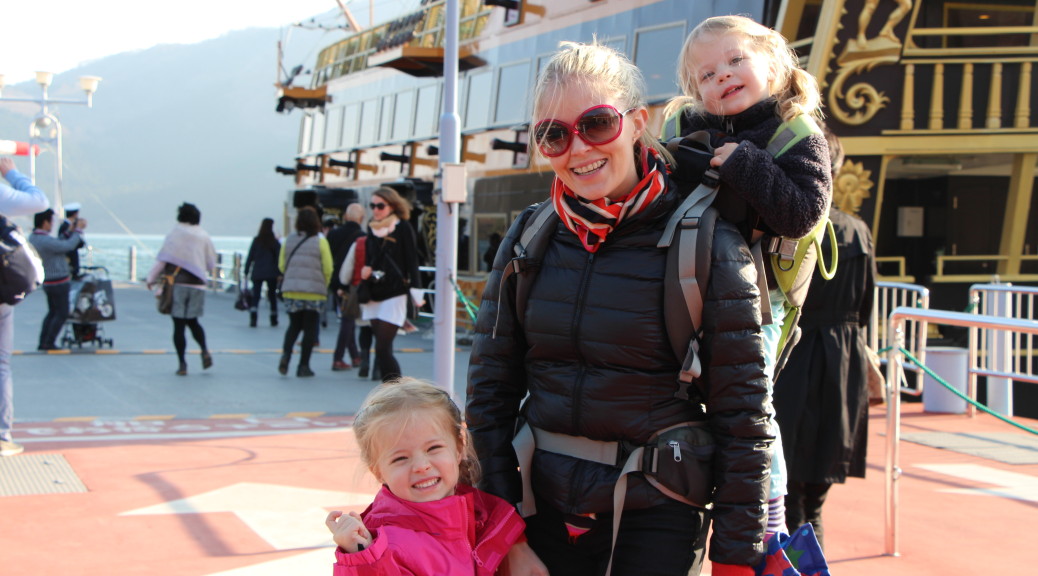Claire Cooke is a mum of two little girls, based in Abu Dhabi. She has lived in Dubai, Abu Dhabi and Paris, and is originally a Yorkshire lass who tried to teach her fellow graduates at Oxford University the merits of a short “a”. You can follow Claire and her family on her Instagram account @claritycreatives
“Hello beautiful!” The words just popped out of my mouth. And – in the context of what my friends and I had been discussing – this wasn’t a good thing.
We have been debating the power of language and the impact of the words that we choose to use with our sons and daughters. Inspired by the incredible Jenni Murray and her guest on an early January “Woman’s Hour” podcast, Susi Orbach (author of “Fat is a feminist issue”), I am now watching my words very carefully.
Try to compliment a girl without commenting on her appearance. Just give it a go. In most cases we have to think twice – or at least a little deeper – about how else we can boost her self-esteem and pay her a compliment without referring to the way she looks.
The same goes for small boys – and by constantly commenting on their appearance, we are affecting their self-esteem. In doing so, are we effectively teaching our children that appearance sits at the top of the list of compliments? Is this because we know that we tend to perform better if we look and feel good about ourselves?
It’s really important to be selective in the language we use around our children, to empower them to believe in multiple positive aspects about themselves, beyond their Bieber-style bangs or their Beyoncé-style booty. With the Kardashians and Miley polluting our media intake, as parents we have a very hard task at hand to convince our children of their self-worth.
We also live in an environment where aesthetic self-improvement is very much a daily deed – many of the mums on my school run look amazing with their designer shoes and perfect blow dries. I take my hat off to them. But I also wonder what message we are sending to our children. Is perfect grooming so critical? What are we teaching them about how we spend our time? We are our own “brands” – but what if our “brands” signposted a morning of gardening, or several hours in front of a computer rather than a mirror?
The word “balance” came up several times in our discussion, as we acknowledged the importance of taking care of your appearance, and the boost to a woman’s self-esteem when she is told she is beautiful. It is important to brush your hair, or do whatever it takes to avoid giving the people you might meet on your morning stroll a bit of a shock! By all means, if putting on mascara gives you a confidence boost, I can guaran-damn-tee you that once you’ve tried Chanel’s Le Volume, you’ll never look back.
The balance comes in proactively complementing our children on their achievements, their positive attributes or simply the effort we know it took in just trying really hard with their work, on their playdates and with their siblings at home.
Parenting experts are constantly reminding us to celebrate the positive behaviours our children display, to make a real effort to congratulate good behaviour to offset the need for so many reprimands and also to bring those aspects to the surface of their sense of self-worth and self-esteem.
So what do we say to our children? We agreed on positive language about their achievements and behaviour, balanced with the occasional compliment about their appearance, linking where possible to the benefits of a healthy lifestyle, eating well and exercise. After all, you can’t go through life looking like you’ve been dragged through a hedge backwards (we want our kids to get good jobs after all) and it is important to brush your hair, clean your teeth and keep up some level of personal grooming. And if you can work those amazing pigments from the Mac eyeshadow counter, go for it!
Above all, we want our children to make the right choices about the way in which they look, and hope that they’ll always be privileged enough to be able to do so.

